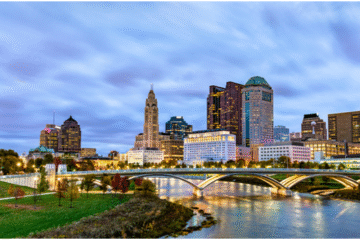ICFs Are The Future Of Sustainable Building Construction!

People are more cautious and aware of the changing scenarios and technical upliftment. It is the case in almost all industries in today’s time. Be it communication, automobile, or even construction, for that matter. Every industry is evolving with time and adapting to new-age methods and processes for a sustainable future. One such development in the construction industry is the discovery of form blocks.
www.blockedicf.com is one company that creates ICFs for a sustainable future in building construction. Now, what are these ICFs? Let us take you through it in detail and help you understand it better and its origin.
What Is The History And Origin Of Icfs, And Where Was It Discovered?
ICF, insulating concrete forms, is utilized for holding fresh concrete in the construction line. They remain in place permanently to insulate the structure and keep it enclosed. These ICFs were initially used during World War II.
These form blocks were held together by cement and were typically used in Switzerland initially. During the 1940s and 50s, chemical factories used to develop plastic forms. But by the 1960s, a Canadian inventor discovered a form block, a replacement for today’s ICFs. The Europeans were also trying to develop similar products in the market.
In the 1980s and 90s, a few American companies started manufacturing blocks, panels, and planks. By the mid of 1990s, the Insulating Concrete Form Association was founded for research and development purposes.
What Are The Advantages Of Using Icfs In Building Construction?
ICF plays a vital role in constructing buildings with long lifespans. They provide several advantages to the builders and building owners that are beneficial for years and years to come. With an overall beneficial factor, these blocks play an essential role in the construction business.
The house owners always look forward to various qualities in a house, which are usually supported by ICF, such as
- Long-lasting and concrete walls
- Homes to be disaster resistant and safe to live in
- It is safe from insects, molds, mildew, termites, and rodents.
- The house can block sound and keep the household members safe
- It provides overall comfort and a relaxed environment
- Energy-efficient and encourages savings on the cost
Whereas, when it comes to the contractors and builders, they usually like a fast and easy way of construction that is sturdy and long-lasting. The ICFs are lightweight and easy to ship and erect, with ultimate flexibility and compatibility with the carpenters.




